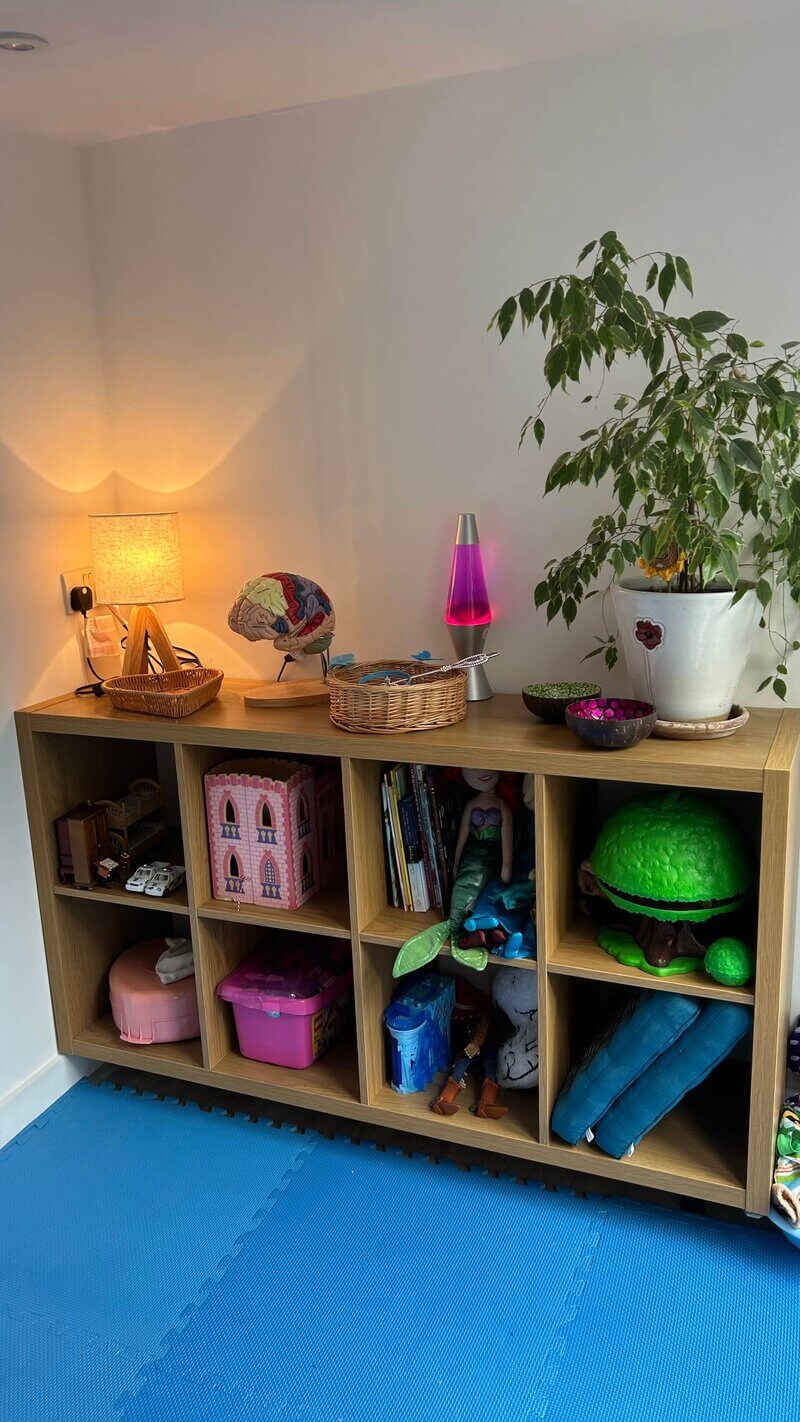The Play Therapy Process
While each child and family are unique, play therapy follows a process designed to create safety, trust, and healing. Your child can explore their emotions at their own pace, while we work together to support their emotional growth and well-being.

The First Session
The first session is a chance for us to get to know each other. I will introduce you and your child to the space, which is filled with toys, art supplies and games. There is no pressure for them to open up or perform in any way — they are free to explore and play as they feel comfortable. This helps build trust so your child can start to feel safe and relaxed in the environment.
Your Role as Parent or Carer
While play therapy is focused on your child, your role as a parent or carer is very important. I will keep you updated on their progress (usually at six weekly intervals) and we can work together to support your child’s emotional growth at home. This might include simple strategies or insights you can use in everyday life to build on the progress made during therapy.
How Play Therapy Helps
It is natural to wonder how play therapy will help your child, but rest-assured that play therapy is a proven, nurturing approach that respects the unique way children process their world. By providing them with this safe space to explore their feelings, you are giving them the tools to better understand and manage emotions, which will benefit them for years to come.
Confidentiality and Safety
During play therapy, what your child shares is kept confidential. This means that I will not disclose details of what happens in session unless it’s necessary for their safety or well-being. By maintaining this confidentiality, children feel safe to express their feelings and thoughts without fear of judgement or consequence.
Specific circumstances where confidentiality may need to be broken
In these cases, I will always try to discuss the situation with you first, ensuring transparency whenever possible.
- Risk of harm: If I believe your child is at risk of harm to themselves or others, I am obligated to take steps to protect them, which may involve sharing information with parents or relevant authorities.
- Legal requirements: If there is a legal obligation, such as a court order, I may need to share certain information.
By upholding these confidentiality standards, I ensure that play therapy remains a safe, respectful, and supportive process for both your child and your family.